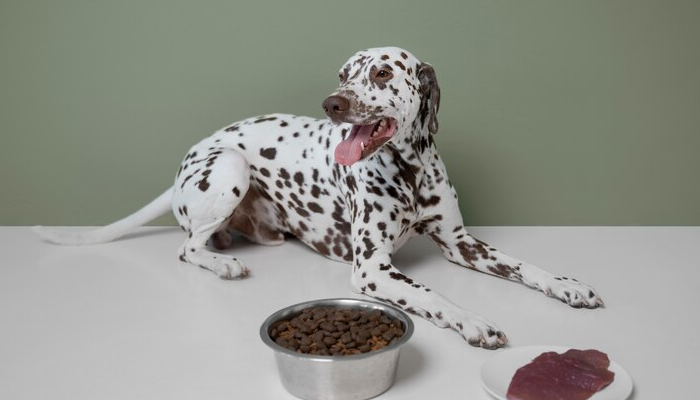It’s a wonderful and happy occasion to bring a French Bulldog puppy into your home. One of your top priorities as a conscientious pet owner is making sure your animal companion gets the greatest nourishment available. In 2024, there are so many possibilities available on the market that choosing one becomes difficult. Taking into account important aspects including ingredients, grain-free options, price, kibble size, flavor, stool quality, and indications of food allergies, we’ll examine the top choices for the best food for French Bulldog puppies in our extensive guide.
Matter of Ingredients: The base of any good dog food is its composition. A well-balanced diet full of premium proteins, good fats, vitamins, and minerals is often the foundation of a French Bulldog puppy’s ideal nutrition. Dog foods with actual meat as the main ingredient—such as fish, poultry, or lamb—should be sought out. To support your Frenchie’s general health, steer clear of artificial additives and fillers.

Dog foods free of chicken and grains: Although chicken is a popular source of protein, some French Bulldogs may be allergic to it or have sensitivity issues. Take into consideration dog diets without chicken to satisfy such needs. Furthermore, some dogs may have difficulty breaking down grains. Choosing grain-free products, which usually include peas or sweet potatoes as substitutes for other types of carbs, may improve digestion and general health.
The Cost: You should carefully examine your budget while selecting the best food for French Bulldog puppies. Reaching a balance between quality and price is essential. Fortunately, several reliable businesses are offering top-notch options at various pricing points. Investing in premium dog food can result in long-term financial benefits as it will promote your Frenchie’s health and potentially prevent costly veterinary bills.

The Kibble’s Size: Flat faces and short muzzles are two of the French Bulldogs’ distinctive facial features. Because of their unusual anatomy, they may find it difficult to eat some kibble sizes comfortably. To make sure your puppy can eat without straining or feeling uncomfortable, use dog diets with small, readily chewable kibble.
The Allure of Flavor: Similar to people, dogs also have taste preferences. Some people might like the bold flavors of beef, while others would like the subtler flavors of fish. Try a variety of flavors to see which ones your French Bulldog puppy likes the best. In addition to preventing mealtime boredom, a varied palette helps guarantee your Frenchie gets a well-rounded nutritional profile.
Measuring Your French Bulldog’s Stool: One of the most important ways to assess the health of their digestive system is to keep an eye on their stool. Solid, well-formed feces are usually the result of feeding your dog high-quality food with balanced components. It can be necessary to modify their diet if you observe variations in their consistency, color, or frequency. Additional information about your Frenchie’s general health can be obtained via routine veterinarian examinations.
The symptoms of a food allergy in your French Bulldog are similar to those of any other breed. Be on the lookout for symptoms including itching, redness, upset stomach, or behavioral changes. Seek quick advice from your veterinarian if you think you may have a food allergy. Dogs who are prone to allergies may benefit from selecting hypoallergenic or limited-ingredient dog meals.
What best food for french bulldog puppies whose stomach is sensitive?
We usually suggest home-cooked food for dogs with sensitive stomachs so you know exactly what your dog is feeding them. But it’s crucial to make sure the switch from store-bought to homemade dog food happens gradually. Here are our fundamental rules that you can adhere to while making the change:
- Days 1-3: ¼ home cooked + ¾ store-bought
- Days 4-6: ½ home cooked + ½ store-bought
- Day 7-10: ¾ home cooked + ¼ store-bought
In conclusion, the best food for French Bulldog puppies should be chosen with great care, taking into account factors like ingredients, grain-free choices, cost, kibble size, flavor, stool quality, and any indications of potential food allergies. You may promote the general health, happiness, and well-being of your Frenchie by giving their nutritional needs top priority. Remember that each dog may have different nutritional demands, so pay attention to your puppy’s particular requirements and seek the counsel of your veterinarian for customized guidance.
You can also read top 5 more blog.
